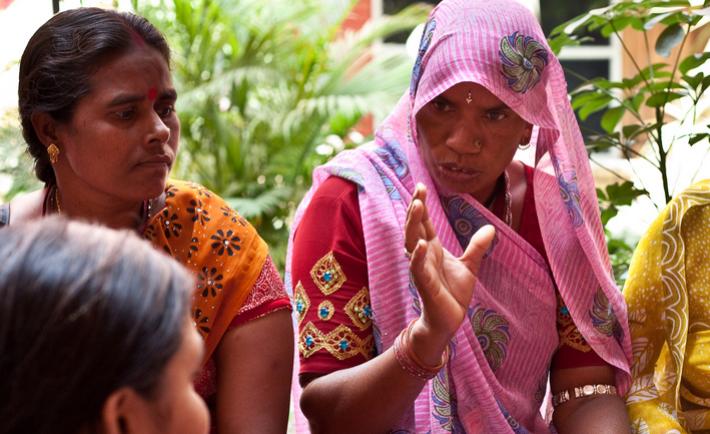
Women leaders in India, where the constitution dictates that one third of seats in local entities are reserved for women. Photo by: Gangajit Singh Chandok / U.N. Women / CC BY-NC-ND
To achieve a world “in which every woman and girl enjoys full gender equality and all legal, social, and economic barriers to their empowerment have been removed,” will require political action — leadership, commitment and accountability. The U.N.’s “Transforming Our World” sustainable development framework, which will be adopted by the General Assembly in the coming days, is the latest call to action. We will all be judged on what we do over the next 15 years to make that ambition into an empowered reality for women and girls. Sustainable development goal 5 to “achieve gender equality and empower all women and girls” expands significantly on the Millennium Development Goals by detailing in a single goal a full range of issues and actions that will drive success. However, in the proposed indicators, which anchor accountability for the new global framework, critical metrics for women’s participation in political life and public decision-making are missing.

